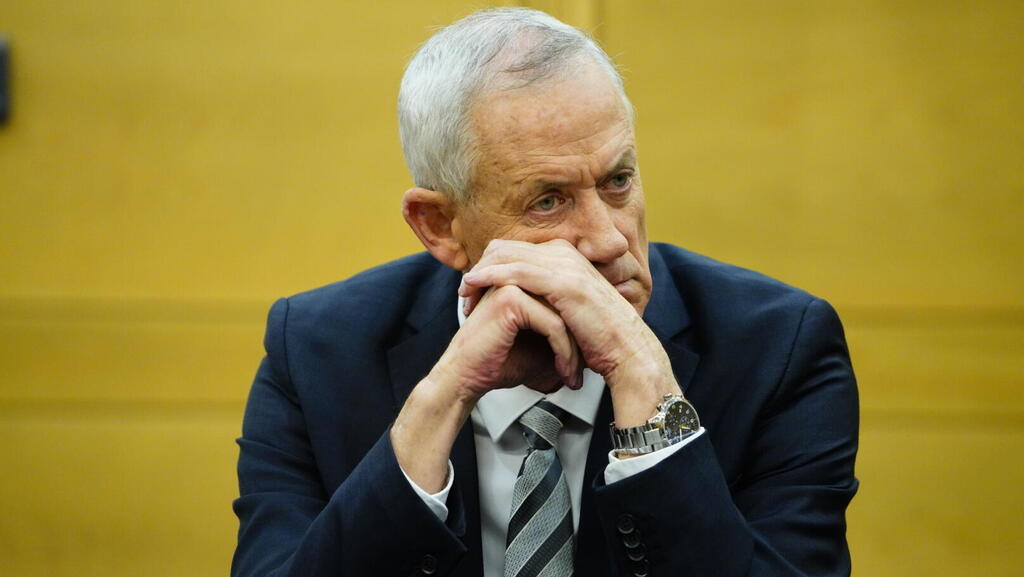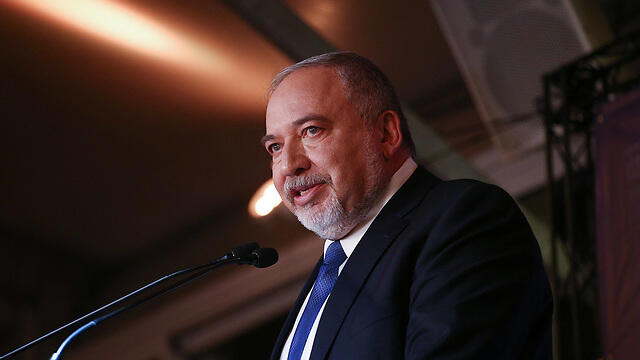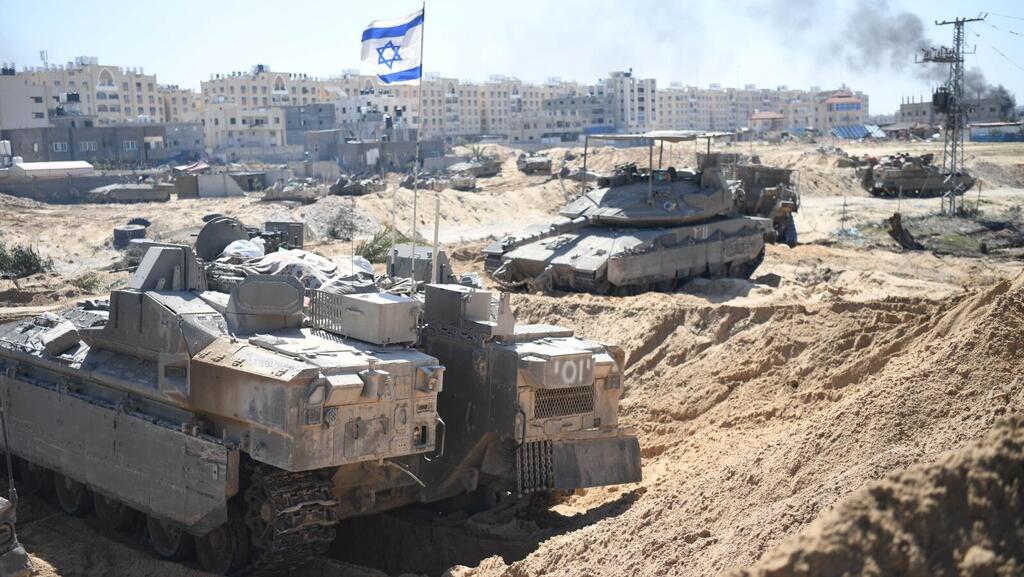The call a week ago by government minister Benny Gantz for September elections in Israel is remarkable for two reasons. First is its distinct lack of originality. Gideon Sa’ar, who broke off his political partnership with Gantz very recently, called for a January election two days before Gantz proposed an even earlier one. Yair Lapid, a partner of Gantz in the slightly more distant past, cannot even wait until September.
The other, more important aspect of Gantz’s call is that it was made on the 180th day of Israel’s war. Precisely six months of fighting have gone by. Some 1,535 Israelis have been killed, and more than 15,000 have suffered various injuries. The current war is already the third bloodiest in the country’s history, after the War of Independence and the Yom Kippur War. Given these blunt facts, it might be considered an obvious necessity to win the war first, and then think about anything else. It is a central sign of the accumulated problems of Israeli society that far too many citizens, and political leaders, do not share this view.
Long-term dysfunction cannot be solved with a khaki election
It is worth recalling, though it appears few now remember, how Israel’s previous government fell apart, in June 2022. The disparate Bennett-Lapid coalition could not muster the votes needed to pass something as basic, and as consensual within Israel, as extending the emergency regulations that apply Israeli law to settlers living within the West Bank. Of course, then-opposition leader Benjamin Netanyahu cynically mustered enough votes against the extension in order to cause the government’s collapse, but the greater blame is Bennett’s and Lapid’s for having formed an unviable coalition in the first place.
The election that followed on November 1, 2022, was Israel’s fifth in three years. The result, it should be emphasized, was far from decisive. Netanyahu’s right-religious coalition won just 64 of 120 seats, a thin majority. In substance, Israel’s fragile political system finally lost balance in late 2018. Back then, Avigdor Liberman walked off the job as Defense Minister, complaining of the failure to be allowed to deal with Hamas, while the rest of the government decided not to pass a law to deal with the problem of ultra-Orthodox conscription. Several years of peace and six months of war later, both of these problems are more acute than they have ever been.
Both Liberman and his counterparts in the ultra-Orthodox parties represent the collapse of Israeli politics. Liberman is the only leader that his party has had in the quarter century of its existence, a record more appropriate for the Soviet Union, in which he was born, than for democratic Israel. His party, Yisrael Beiteinu, won a maximum of just 15 seats in the 2009 election, and now holds six.
The larger of the ultra-Orthodox parties, Shas, peaked at 17 seats a decade earlier, in the election of 1999. A year after Shas’ greatest political success, in 2000, its leader Aryeh Deri was convicted of bribery and went to prison. Some 24 years later, Deri is another man who has had a very long political career, and still leads an 11-member Shas faction in the Knesset.
According to recent polls, very little has changed for the parties of Liberman or Deri. A March poll predicted the former would win 10 seats, the latter 11. So far, the war has not been enough of a shock to change the minds of voters for Liberman or Deri, at a minimum. Essentially, the only thing the voters appear to have decided is that Netanyahu has failed, and Gantz is preferable. The electorate has not even begun to consider the deeper issues at hand.
Britain has had unpleasant experiences with two elections in somewhat similar circumstances, after both World Wars. Both were called khaki elections, a reference to the color of the uniforms worn by the soldiers at the front, and neither did the country much good.
In the vote just after the end of World War I in December 1918, the existing National Liberal-Conservative coalition achieved an electoral triumph, winning almost three-quarters of the seats and putting an end to the old Liberal party. Two decades of a rather insipid form of Conservative party dominance followed, marked above all else by a failure to deal with fascism and nazism, which led directly to World War II.
Once that war ended in 1945, there was a smaller, but significant, landslide victory. This time, the opposition, now the Labour Party, won twice as many seats as the Conservatives. Winston Churchill was thrown out of office without ceremony, and Clement Attlee proceeded to expand welfare and create the National Health Service. In an almost bankrupt country, this left few resources for anything else. Little surprise, therefore, that only about 90,000 British servicemen participated in some form in halting Communist aggression in the three-year Korean War of 1950-1953, as compared with 1,789,000 Americans.
Israel’s political circumstances in 2024 are substantially different from Britain’s in 1918 and 1945, but two central lessons are entirely applicable. First, an election soon after a war may lead to a decisive victory for one side or another, regardless of the objective merits of the victor. Second, such a victory is unlikely to form the foundation for a government that will adopt a thoughtful set of policies, particularly in the all-important areas of foreign affairs and defense.
5 View gallery


Disparate Bennett-Lapid coalition fell apart in June 2022
(Photos: Yoav Dudkevich, Moti Kimchi)
The political system in Israel cries out for reform, a weakening of sectoral parties and a national consolidation. An election this year does not hold the slightest chance of achieving such an outcome.
Israel needs a decisive victory, desperately
Israel’s military position is not remotely as good as Britain’s was in 1918 or 1945. On the same day that Gantz called for an election, the IDF called up air defense reservists, and Defense Minister Yoav Gallant said that “we must prepare for a scenario of war” against Hezbollah. It is clear as day that Israel will either hold an election, or fight a large and difficult war with Hezbollah. An election campaign and a bloody war, involving additional large losses and significant unpredictable dangers are mutually exclusive activities.
In Gaza, the consequences of the inappropriate electoral preoccupations of many Israelis are equally clear. Ismail Haniyeh, the leader of Hamas, has publicly reiterated demands which include a “permanent cease-fire” and complete Israeli withdrawal. This would mean the survival of Hamas and, hence, a catastrophic Israeli defeat.
Simultaneously and entirely unsurprisingly, hysterical international pressure on Israel is rising. Jose Andres of World Central Kitchen (WCK) has claimed that the IDF attack on the employees of his humanitarian organization was “really a direct attack on clearly marked vehicles whose movements were known by everybody at the IDF.” Spain’s Prime Minister Pedro Sanchez has said that Netanyahu’s explanation of the event was “unacceptable and insufficient.” The explanation by the IDF chief of staff that the attack was accidental and happened “at night during a war in very complex conditions” is simply being ignored.
In such circumstances, Gantz’s less prominent comment of April 3 needs to receive greater attention. Incredibly, he suggested that Israel will fight Hamas for “many years” hence. This would be a road to nowhere, and it would not take years for this to become obvious to all.
Israel needs to destroy Hamas, and also to deal Hezbollah a heavy blow, at the very least. Elections, especially elections that will not solve any of the country’s myriad political problems absent thorough reforms of the political system, can and should wait.
Dan Zamansky is a British-Israeli independent historian and author of The New World Crisis, a Substack analyzing the problems of today. He publishes the manuscripts of his articles on Substack a week after publication on Ynetnews.






